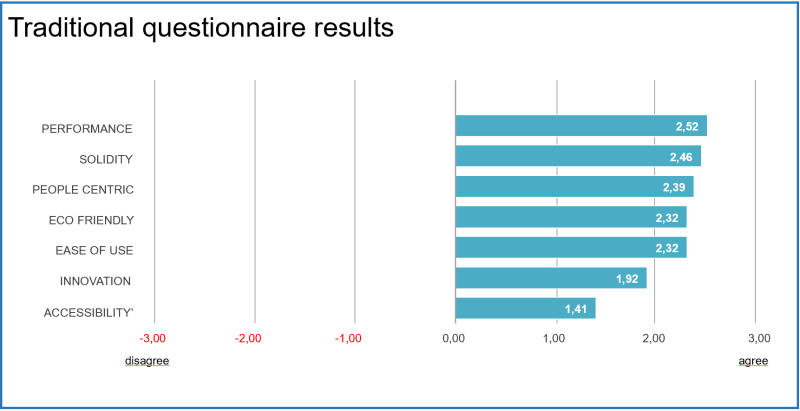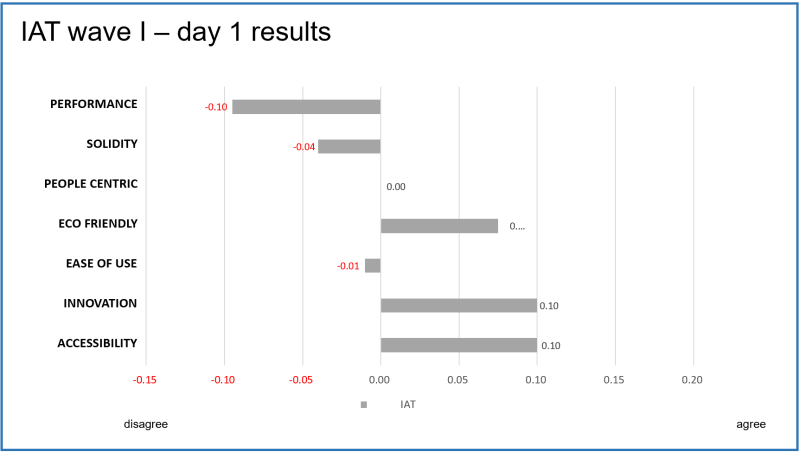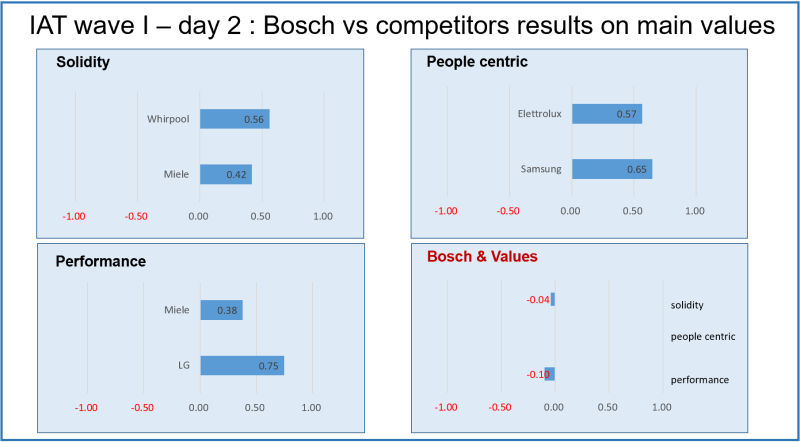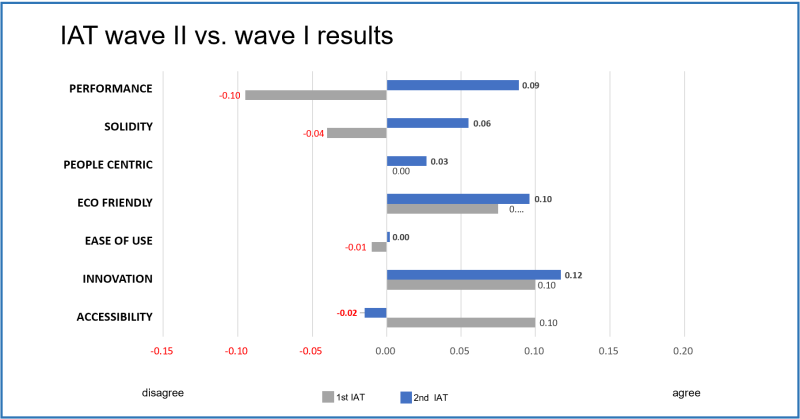A Journey to Build the Conviction to Convince
A brand is an association of emotions and experience memories in consumers’ minds: they are mainly non-conscious and strongly impact choice motivation, customer retention and loyalty. Each time a consumer gets in touch with a brand, particularly in the POP where the final choice is made, those feelings recur and can be reinforced or contradicted: the relationship and conversation with the sales assistant are crucial elements. The Bosch home appliances brand has recently changed its positioning. It was crucial to find out how deeply convinced the sales assistants were of the new brand values, going beyond their verbal rational statements.
Approach
Bosch has recently revised its identity, moving from a cold, made in Germany, functional based brand image to a warmer, people-centric, ease of life benefit oriented image. The new personality and related values have been presented internally and clear guidelines have been provided for the sales force. Nevertheless, a rational, conscious knowledge of a desired identity and the related values may not be sufficient to make the most of the sales force’s persuasive power.
In addition, the effects of a long-lasting relationship with the brand’s old personality and years of technical/functional-based training are not easily changed and can form a subtle and persistent obstacle to building a deep non-conscious conviction that is crucial for really persuasive sales argumentations.
Our aim was to investigate and measure the discrepancy between rational and non-conscious association with the new values of Bosch and create an effective training process for the sales force to enable them to bridge the gap and make them genuinely persuasive. The project spanned more than one year and actively involved the group of Bosch sales assistants responsible for 900 points of sale in Italy and training the related sales force.
A combination of traditional assessment and neuromarketing research methods (Implicit Association Test, designed and carried out by BrainSigns) enabled the measurement of the discrepancy between rational adhesion to new brand values and basic non-conscious neutrality to all of them in contrast to explicit statements. Emotion-based team training and exercises/presentation sessions aided sales assistants to start moving their mental framework and presentation habits from a technical/functional basis to the desired people-centric emotional ones. Intermediate steps have been planned to monitor value association changes via IAT (by BrainSigns) and to implement new emotional training sessions including storytelling, presentation and public speaking techniques. Neurometric data so far confirm slow but continuous and consistent positive results.
Project structure: steps and related results
Sharing of Bosch values meanings
- Insufficient spontaneous association of values with the brand despite clear guidelines received by Bosch headquarters.
Assessment of explicit rational association: Brainstorming and traditional questionnaire
- Positive/correct aided association with new brand values.
Implicit Association Test (wave I):
Day 1: association of values to Bosch
- Basic non-conscious neutrality to all values in contrast to explicit statements.
Day 2: key values association to Bosch vs. main competitors
- Strong implicit conviction of Bosch superiority vs its competitors.
Emotional presentation of Bosch brand: To force brand presentation avoiding the use of technical functional language
- Single exercise: description of personal meaning of each value associated with an emotion or feeling
- In pair exercise: 20 minutes’ brand presentation.
Sharing of Bosch values meanings
- Less technological and functional interpretation of Bosch values, more people-centric, warm associations.
Implicit Association Test (wave II) after four months
- Slight improvement in all values non-conscious association.
On-going training follow on: Storytelling, public speaking training session brand/product emotional presentation exercises
- Language analysis of presentations shows shift versus more people-centric values.
- All activities results prove empathy and tendency to identify in consumers’ needs and expectations.
New Implicit Association Test wave
- To be carried out shortly to monitor positive shift.
Conclusion
The study confirms that enunciating a new brand identity and the related new values to make the sales force deeply convinced about them is insufficient. Neither is it enough to rely on rational statements as people are unaware of their own non-conscious associations.
The combination of traditional and neuromarketing research tools has proven highly effective in measuring and monitoring the changes in the real belief and to accordingly design a “step by step” emotional training project able to effectively change the brand perception and the ability to correctly present it and its products.
CONTACT INFORMATION
Ottosunove
www.ottosunove.com
This article was originally published in the Neuromarketing Yearbook. Order your copy today!